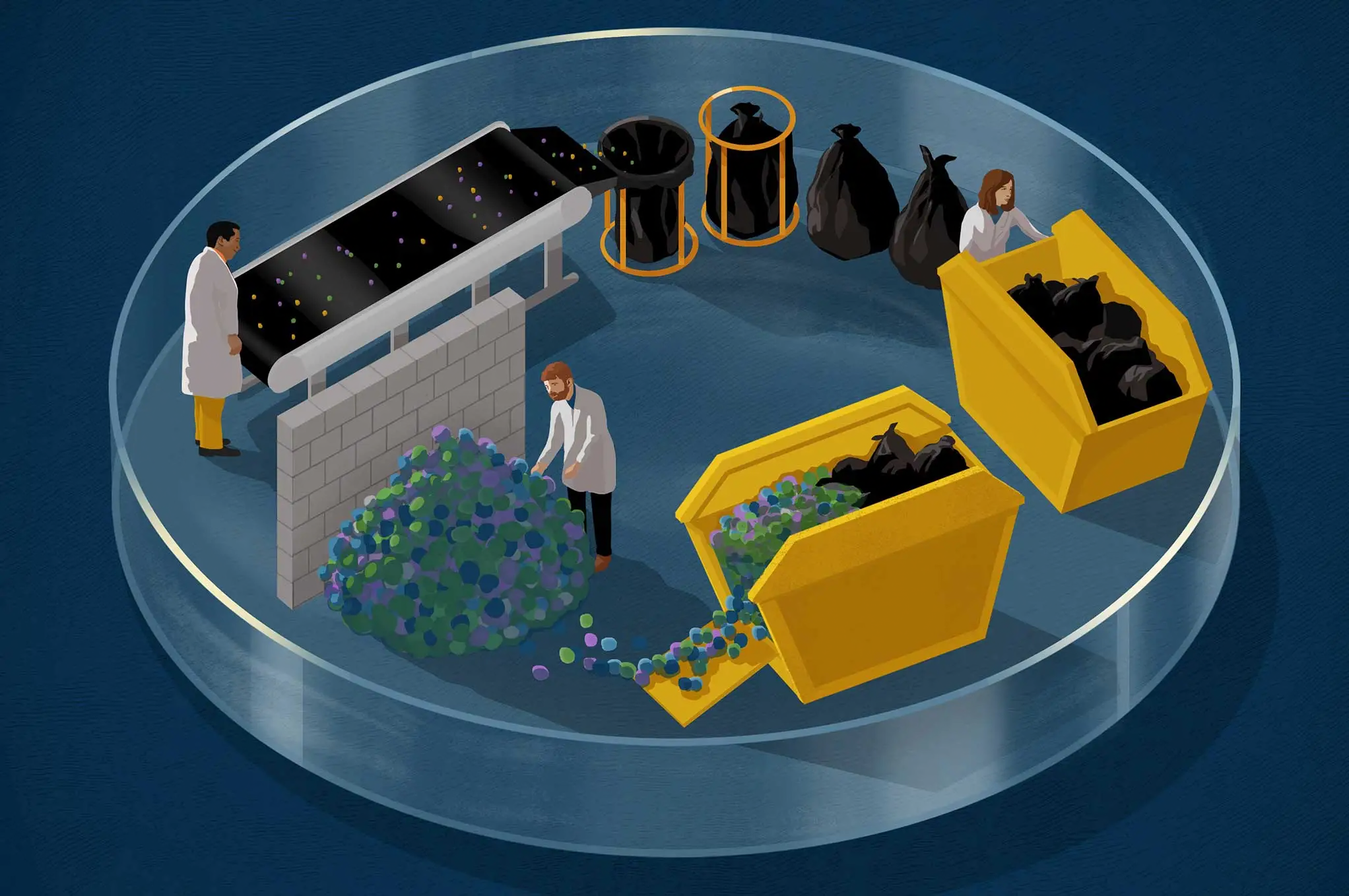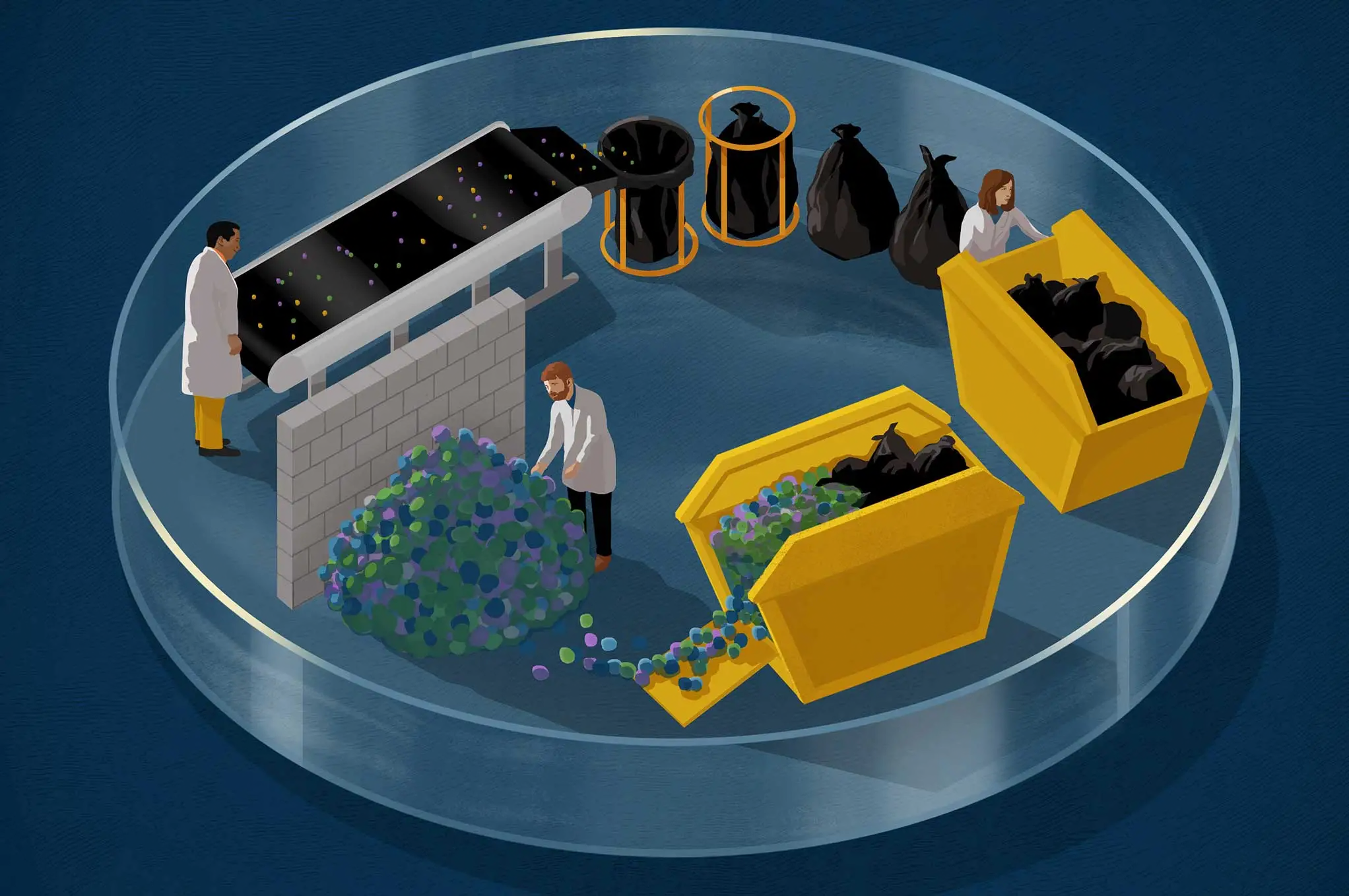Research Has a “Trash Island.” Some Are Trying to Clean it Up.
Bad science can do lasting damage. A study falsely connecting COVID-19 to 5G wireless technology, for instance, was quickly retracted for its sloppy methods and unearned conclusions, though not before causing a wave of conspiracy theories. This past March, a controversial 2017 study suggesting sepsis could be treated with vitamin C—a sign of hope in the battle against the leading cause of death in hospitals—was alleged to be based on fraudulent data, not the first time its findings had been challenged.

Yet other studies go beyond bad data and are wholly fraudulent from their inception. A curious subset of these are scientific papers that are generated by computer programs. Custom algorithms can contribute sections or even spin up whole papers by splicing together likely-sounding phrases or linguistically twisting already-published results. Such papers get printed, even by reputable publishers, and while many of these papers have been retracted, some are still being cited in the scientific literature years after their retraction. The idea of a computer-generated paper was originally pioneered as a prank—intended to expose duplicitous practices in the publishing world—but the technology is now sometimes used to pad resumes of those desperate to publish. The end result is a veritable trash island of papers that clog research databases and, occasionally, get published and cited.
While this has been a problem for some time, the COVID-19 pandemic made garbage research especially difficult—and especially vital—to ferret out. The onset of the health crisis unleashed a flood of desperately needed studies, with one analysis finding that between February and May 2020, the number of papers submitted to health and medicine journals published by Elsevier, a leading publisher of scientific research, 63% higher than a year earlier. The growing volume of published studies across the globe—some 2.9 million science and engineering studies in 2020 alone—calls for an effort to clean house.
Several ingenious tools are now helping to do that. A recent tool, developed by French computer scientist Guillaume Cabanac at the University of Toulouse and his colleagues, can scan over 100 million papers in a database, zeroing in on “tortured phrases.” These are oddball paraphrases of scientific terms that can be the tip-off of an effort to copy existing research.
